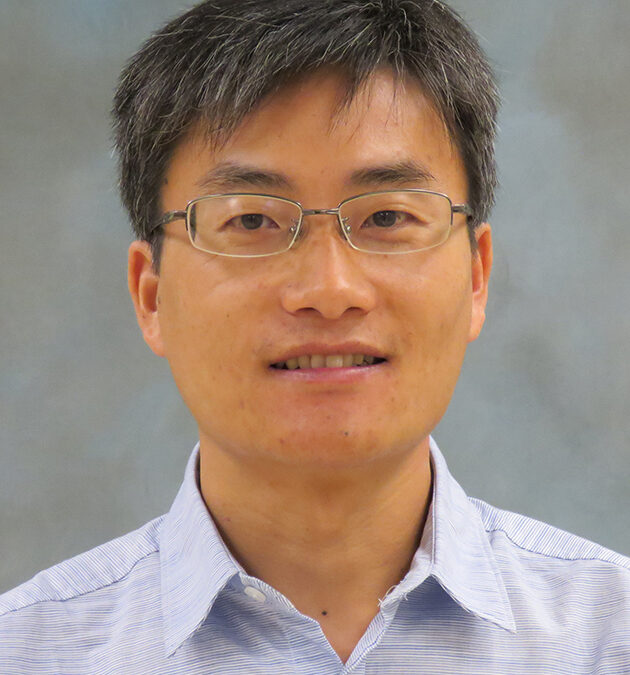Image of Bo Wang.
Urbana, Ill. – Bo Wang, assistant professor of comparative biosciences, is bringing his expertise in lipid metabolism to the Cancer Center at Illinois. Wang specializes in liver and colorectal cancers, which are both highly related to lipid metabolism.
Human fatty liver disease is highly prevalent in the United States, with an estimated 25 percent of adults presenting with non-alcoholic fatty liver disease (NAFLD) and 5 percent of adults with non-alcoholic steatohepatitis (NASH).* NAFLD patients are at high risk of progressing to NASH which is a much more severe disease with no FDA-approved treatments.
NASH patients are more likely to develop liver cancer as there is a link between dysregulated lipid metabolism and cancer progression. However, the mechanisms are unclear, and Wang is focusing on uncovering these fundamental details.
Research, including studies by other Cancer Center at Illinois (CCIL) scientists such as Rex Gaskins, has shown that cholesterol metabolism and high cholesterol levels are linked to colorectal cancer. Wang’s own research with mouse models has uncovered a link between another membrane lipid, phospholipids, and tumorigenesis in mouse intestines.
Phospholipids make up a large part of cell membranes and play very important roles in regulating cell functions. They are comprised of hydrophilic head groups and hydrophobic fatty acid tails, enabling them to form a double-layer membrane with a hydrophilic exterior and hydrophobic interior.
“Phospholipid remodeling modulates the composition of lipids in the cell membrane, which determines the biophysical properties of membrane. More unsaturated phospholipids make the membrane more fluid, whereas more saturated phospholipids make it more rigid – these properties affect cell function,” Wang said. “Phospholipid remodeling is controlled by an enzyme, LPCAT3, that changes double bonds in the layer, which my lab is focusing on.”
Wang started to investigate these relationships with stem cells and their response to phospholipid remodeling, especially in the intestines, where there is a very high turnover rate of epithelial cells (every 3 – 5 days). Any changes to the stem cell population may give rise to cancer.
“Investigating cholesterol metabolism and colorectal cancer was a natural extension of my postdoctoral research, where I noticed a link between phospholipid remodeling and cholesterol metabolism, which regulate the function of stem cells and promote the development of colorectal cancer, so I’m continuing that work to better understand the link between cholesterol metabolism and cancer development,” Wang said.
Wang is also interested in the role of lipid metabolism in other types of cancers, such as breast cancer, where obesity is a high-risk factor. His lab is also actively researching obesity and insulin-resistant diabetes.
“Obesity itself doesn’t cause cancer, and there has to be more than one factor present for a patient to develop cancer. But, there’s a link, and patients with obesity and diabetes are at a higher risk,” Wang said.
Wang is also a member of the CCIL’s working group, Cancer and Microbes, where Illinois researchers investigate the role of the microbiome in the physiology of cancer and its development. Specifically, Wang is interested in bile acid metabolism, which has been shown to influence colorectal cancer, and is looking forward to finding collaborators for this work.
– Written by the CCIL Communications Team

